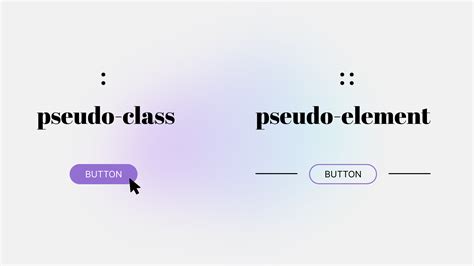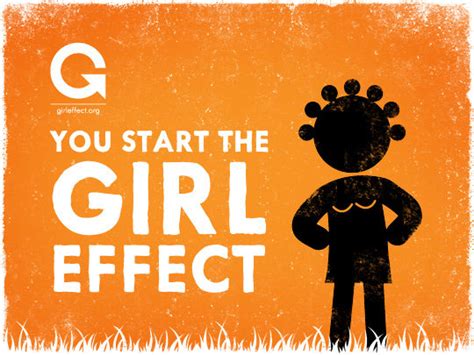fake nike feminism | “Willpower knows no obstacles”: Examining Neoliberal fake nike feminism Spearheaded by the ‘Girl Effect’ campaign of athletic apparel giant Nike (since 2008), development institutions and aid agencies have largely embraced the idea that ‘rebranding girls’ in the Global South as untapped market potential and training them as self-confident, entrepreneurial market actors represents the key to solving poverty. Las Vegas Shop Food Court Food Court Food Court Gift Shop Thunder Bar Box Office WALKWAY TO LUXOR ROYAL TOWER Bell Desk Hotel Lobby TRAM STATION TO LUXOR & MANDALAY BAY WALKWAY TO NEW YORK-NEW YORK & T-MOBILE ARENA ONT ANCE s d. Te Mket ELEATORS Swo te Stoe B & Cool Bo Ofice Toet o Ks Ace 4-D .
0 · “Willpower knows no obstacles”: Examining Neoliberal
1 · Pseudo
2 · Nike’s Girl Effect and the Privatization of Feminism
3 · Nike's diversity advert causing a backlash in Japan
4 · Nike calls out gender stereotypes with powerful new ad
5 · Korean Consumers’ Responses to Nike ’s “Women’s Just Do It
6 · How Nike’s Neoliberal Feminism Came to Rule the Global South
7 · Girl Branded: Nike, the UN and the Construction of the
8 · Celebrity Feminism: Nike Style Post
9 · Brand Activism and Gender: Nike as a Case Study
Time in Riga: 10:51, 05.15.2024. Listen online to European Hit Radio station 88.4-107.4 MHz FM for free – great choice for Riga, Latvia. Listen live European Hit Radio with Onlineradiobox.com.
In the winning paper for the 2015 Audre Rapoport Prize, Maria Hengeveld astutely argues that the Girl Effect only serves to legitimize Nike’s reputation and image by obscuring its own role in creating poverty while it rebrands itself as a . Using a critical cultural studies approach in concert with a transnational feminist framework, we analyze six recent Nike advertisements (the United States, Mexico, the Middle East, Turkey, India, and Russia) and critique the corporation’s universalization of neoliberal postfeminist messaging within its global marketing strategies. That’s one of the reasons why Nike, in its earliest outsourcing days, chose South Korea, a country that was ruled by a military government that was all too keen to suppress workers’ unions, and where gender norms allegedly measured women’s morality by her willingness to work hard for her family.Pseudo-feminism, also known as fake feminism or feminism appropriation, refers to the act of co-opting feminist rhetoric and ideologies for purposes that contradict or undermine the goals of feminism.
Spearheaded by the ‘Girl Effect’ campaign of athletic apparel giant Nike (since 2008), development institutions and aid agencies have largely embraced the idea that ‘rebranding girls’ in the Global South as untapped market potential and training them as self-confident, entrepreneurial market actors represents the key to solving poverty.Nike is facing a backlash in Japan over an advert which highlights racial discrimination in the country. The video shows the "real life experience" of three young soccer players from mixed.athletes portrayed by Nike are those that adhere to gender stereotypes, indicating that Nike chooses to reinforce hegemonic masculine ideals rather than being genuinely inclusive and progressive in regard to gender.We interrogate Nike’s implication in the developments of 1980s and 1990s popular feminisms by contextualizing and examining the advertising strategies deployed by Nike in its efforts to seduce women consumers. Although Nike is represented as progressive and pro-women, we demonstrate Nike’s alliance with normative forces dominating 1980s .
Nike launches the ad amid a controversial climate for women athletes, not just because of the Semenya case, but also because of a clash between tennis icon Martina Navratilova and those like her. According to study results, feminists, regardless of gender, have more positive (a) attitudes toward femvertising and (b) brand and have (c) higher purchase intention than non-feminists. In addition, study findings suggest that high perceived congruence between the brand and femvertising messages results in more positive attitudes toward . In the winning paper for the 2015 Audre Rapoport Prize, Maria Hengeveld astutely argues that the Girl Effect only serves to legitimize Nike’s reputation and image by obscuring its own role in creating poverty while it rebrands itself as a .
Using a critical cultural studies approach in concert with a transnational feminist framework, we analyze six recent Nike advertisements (the United States, Mexico, the Middle East, Turkey, India, and Russia) and critique the corporation’s universalization of neoliberal postfeminist messaging within its global marketing strategies. That’s one of the reasons why Nike, in its earliest outsourcing days, chose South Korea, a country that was ruled by a military government that was all too keen to suppress workers’ unions, and where gender norms allegedly measured women’s morality by her willingness to work hard for her family.Pseudo-feminism, also known as fake feminism or feminism appropriation, refers to the act of co-opting feminist rhetoric and ideologies for purposes that contradict or undermine the goals of feminism.
Spearheaded by the ‘Girl Effect’ campaign of athletic apparel giant Nike (since 2008), development institutions and aid agencies have largely embraced the idea that ‘rebranding girls’ in the Global South as untapped market potential and training them as self-confident, entrepreneurial market actors represents the key to solving poverty.Nike is facing a backlash in Japan over an advert which highlights racial discrimination in the country. The video shows the "real life experience" of three young soccer players from mixed.athletes portrayed by Nike are those that adhere to gender stereotypes, indicating that Nike chooses to reinforce hegemonic masculine ideals rather than being genuinely inclusive and progressive in regard to gender.We interrogate Nike’s implication in the developments of 1980s and 1990s popular feminisms by contextualizing and examining the advertising strategies deployed by Nike in its efforts to seduce women consumers. Although Nike is represented as progressive and pro-women, we demonstrate Nike’s alliance with normative forces dominating 1980s .

“Willpower knows no obstacles”: Examining Neoliberal
Nike launches the ad amid a controversial climate for women athletes, not just because of the Semenya case, but also because of a clash between tennis icon Martina Navratilova and those like her. According to study results, feminists, regardless of gender, have more positive (a) attitudes toward femvertising and (b) brand and have (c) higher purchase intention than non-feminists. In addition, study findings suggest that high perceived congruence between the brand and femvertising messages results in more positive attitudes toward . In the winning paper for the 2015 Audre Rapoport Prize, Maria Hengeveld astutely argues that the Girl Effect only serves to legitimize Nike’s reputation and image by obscuring its own role in creating poverty while it rebrands itself as a . Using a critical cultural studies approach in concert with a transnational feminist framework, we analyze six recent Nike advertisements (the United States, Mexico, the Middle East, Turkey, India, and Russia) and critique the corporation’s universalization of neoliberal postfeminist messaging within its global marketing strategies.
That’s one of the reasons why Nike, in its earliest outsourcing days, chose South Korea, a country that was ruled by a military government that was all too keen to suppress workers’ unions, and where gender norms allegedly measured women’s morality by her willingness to work hard for her family.
Pseudo-feminism, also known as fake feminism or feminism appropriation, refers to the act of co-opting feminist rhetoric and ideologies for purposes that contradict or undermine the goals of feminism.
Spearheaded by the ‘Girl Effect’ campaign of athletic apparel giant Nike (since 2008), development institutions and aid agencies have largely embraced the idea that ‘rebranding girls’ in the Global South as untapped market potential and training them as self-confident, entrepreneurial market actors represents the key to solving poverty.Nike is facing a backlash in Japan over an advert which highlights racial discrimination in the country. The video shows the "real life experience" of three young soccer players from mixed.
athletes portrayed by Nike are those that adhere to gender stereotypes, indicating that Nike chooses to reinforce hegemonic masculine ideals rather than being genuinely inclusive and progressive in regard to gender.We interrogate Nike’s implication in the developments of 1980s and 1990s popular feminisms by contextualizing and examining the advertising strategies deployed by Nike in its efforts to seduce women consumers. Although Nike is represented as progressive and pro-women, we demonstrate Nike’s alliance with normative forces dominating 1980s .

Nike launches the ad amid a controversial climate for women athletes, not just because of the Semenya case, but also because of a clash between tennis icon Martina Navratilova and those like her.

how much goyard bag

Pseudo
Sabiedrība ar ierobežotu atbildību "EUROIMPEX", Reg. No.: 40003889593 . Company Latvia. Evaluate Follow. Contact. Jelena Krasnaja Send a message. [email protected]. . (ET) Lietuvių (LT) Latviešu (LV) Русский (RU) Mediaplans. In our portal we are using cookies. Using the portal, you agree to the use of cookies. You .Latvijas Loto izmaksā 1. grupas (5+2) un 2. grupas (5+1) faktisko uzkrājuma summu. Skaitļu loterijas Eurojackpot iepriekšējās izlozes rezultāti. Skaitļu loterijā Eurojackpot, uzminot 5 skaitļus un 2 papildskaitļus, iespējams laimēt līdz pat 120 miljoniem eiro!
fake nike feminism|“Willpower knows no obstacles”: Examining Neoliberal




























